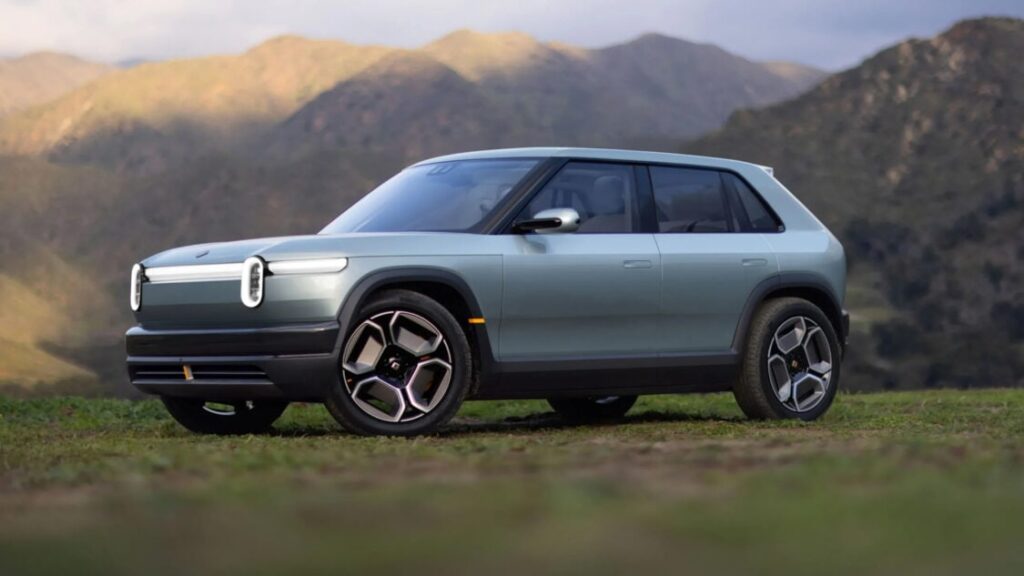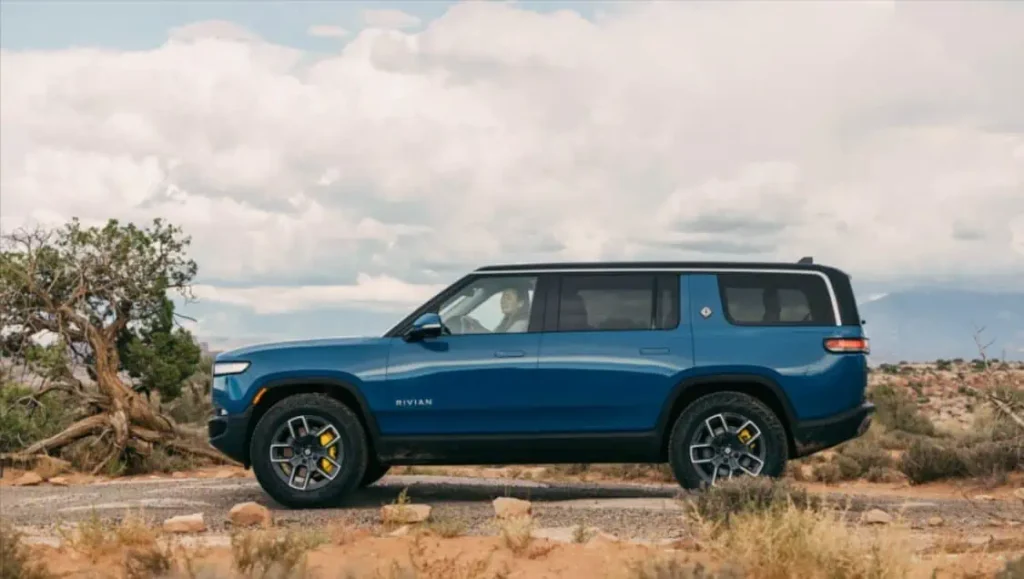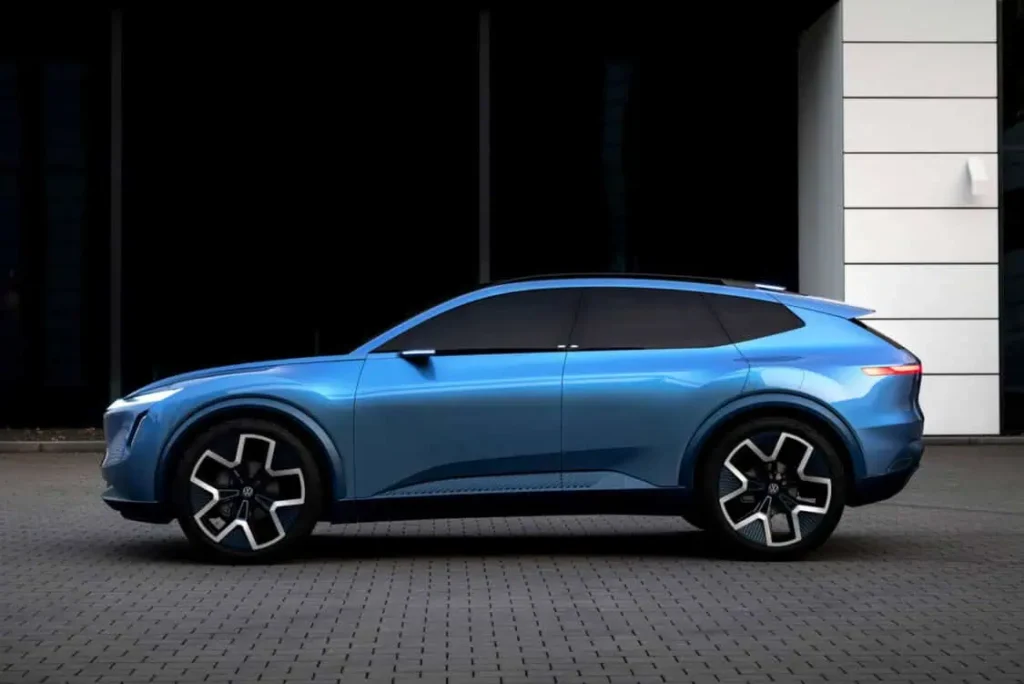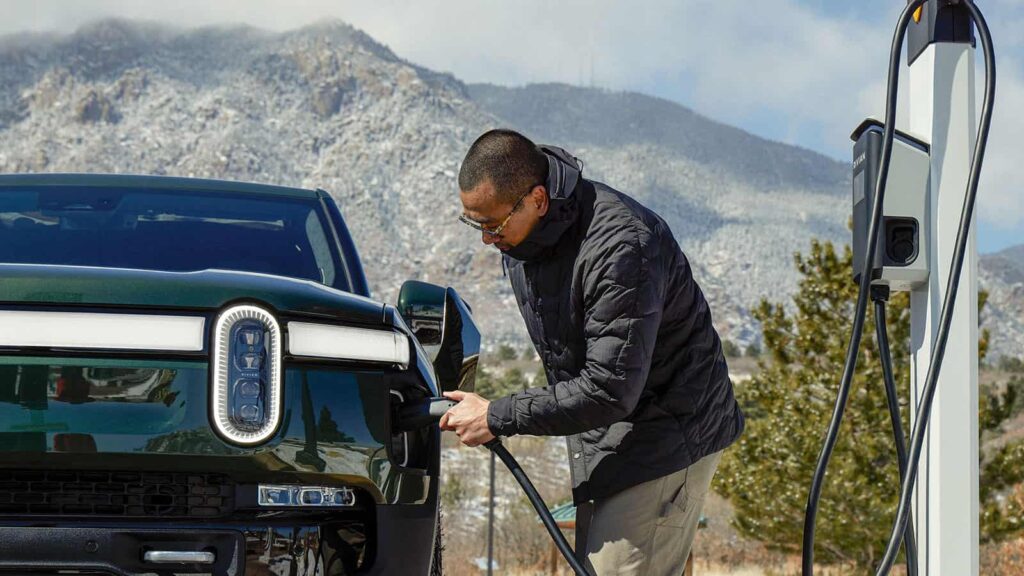Volkswagen Invests $5 Billion in Joint Venture With Rivian
Volkswagen Group’s significant investment in Rivian announced today was a pivotal move in the electric vehicle (EV) market. By investing up to $5 billion, Volkswagen aims to leverage Rivian’s EV architecture and software, enhancing their own EV capabilities. This joint venture represents a strategic collaboration where both companies will equally control the venture, sharing resources and expertise.
Following the announcement, Rivian’s stock surged by about 50% in extended trading. If these gains hold, Rivian’s market value could increase by nearly $6 billion, reflecting strong investor confidence in the potential of this partnership to drive innovation and growth in the EV sector.

The auto industry is currently navigating a challenging period, with EV startups experiencing a slowdown in demand due to high interest rates and reduced cash flow, while traditional automakers face difficulties in developing battery-powered vehicles and advanced software.
Volkswagen’s commitment to invest $5 billion in Rivian is a strategic response to these challenges. The investment will be phased, with an initial $1 billion followed by an additional $4 billion later. This funding is crucial for Rivian as it aims to develop its less-expensive and smaller R2 SUVs, scheduled for release in 2026, and its planned R3 crossovers.
Rivian’s CEO, RJ Scaringe, emphasized that this investment will provide the necessary capital to advance these new models, which are key to Rivian’s strategy for expanding its market presence and achieving sustainable growth in the competitive EV market.
This investment from Volkswagen will also support Rivian in achieving cash flow positivity, a significant milestone for the company. Rivian, known for its flagship R1S SUVs and R1T pickups, will license its existing intellectual property rights to the joint venture. This licensing agreement allows both companies to leverage Rivian’s established technologies and innovations, fostering collaborative development and potentially accelerating the rollout of new EV models.

The infusion of capital and shared expertise through this joint venture positions Rivian to enhance its financial stability and expand its product lineup, while Volkswagen gains access to advanced EV architecture and software, strengthening its own EV initiatives.
“Any cash infusion like that is huge. Getting the support of Volkswagen Group certainly really strengthens their story toward Europe and toward Asia eventually,” said Vitaly Golomb, managing partner at Mavka Capital in San Francisco, an investor in Rivian.
For Volkswagen, this investment in Rivian is seen by analysts and investors as a strategic move to address the company’s ongoing struggles in software development. Volkswagen’s software division, Cariad, established under former VW Group CEO Herbert Diess, has faced significant challenges, including budget overruns and unmet goals, which contributed to Diess’ departure in September 2022.
Despite these difficulties, Volkswagen remains committed to its ambitious plan of launching 25 EV models in North America across its group brands by 2030. This plan is part of a broader strategy to cement its presence in the growing EV market, even as the company acknowledges a slowdown in segment growth.

By partnering with Rivian and leveraging its advanced EV architecture and software, Volkswagen aims to overcome its software development hurdles and ensure the successful rollout of its planned EV models. This collaboration is expected to enhance Volkswagen’s technological capabilities and accelerate its progress toward its EV goals.
Golomb noted that Volkswagen has not established a significant presence in the large SUV and pickup segments in the U.S. market and has faced challenges with the crossover electric SUV ID4. Despite these setbacks, the partnership with Rivian provides Volkswagen with new opportunities.
By teaming up with Rivian, Volkswagen can:
- Expand its Market Reach: Gain a foothold in the lucrative large SUV and pickup segments where Rivian has already made a name for itself with the R1S SUVs and R1T pickups.
- Leverage Rivian’s Expertise: Utilize Rivian’s advanced EV technology and software capabilities to enhance its own offerings.
- Diversify its EV Portfolio: Broaden its product lineup with new and innovative models developed through the joint venture.
- Improve Software Development: Address the issues faced by Cariad by incorporating Rivian’s proven software solutions into its own EV models.
Rivian’s Cost Cuts
Despite significant losses of nearly $40,000 per vehicle delivered, Rivian has managed to maintain a relatively stable position compared to other EV makers, many of whom have had to slash prices to boost demand or file for bankruptcy protection. To stay afloat, Rivian has implemented several cost-cutting measures while striving to deliver its EVs on time.
Some key strategies Rivian has employed include:
- Manufacturing Overhaul: The company has revamped its manufacturing process, resulting in a 35% reduction in material costs. This initiative was highlighted by CEO RJ Scaringe during an exclusive tour of Rivian’s facility in Normal, Illinois.
- Supplier Contract Renegotiation: Rivian has been renegotiating contracts with suppliers to secure more favorable terms.
- In-House Production: The company has started building some parts in-house to reduce reliance on external suppliers and lower costs.

Despite these efforts, Rivian’s cash and short-term investments fell by about $1.5 billion in the first quarter, leaving it with just under $8 billion. Before the Volkswagen deal, Rivian had indicated that it had sufficient capital to launch its less expensive and smaller R2 SUVs in early 2026.
The partnership with Volkswagen is expected to provide a crucial financial boost, enabling Rivian to continue its cost-cutting measures while advancing the development of its new vehicle models. This collaboration could significantly strengthen Rivian’s market position and financial stability, allowing it to better navigate the competitive and rapidly evolving EV landscape.
